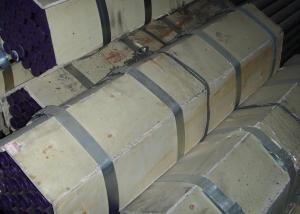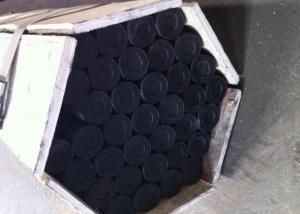Seamless Carbon Steel Tubes
- Loading Port:
- China Main Port
- Payment Terms:
- TT or LC
- Min Order Qty:
- 20MT m.t.
- Supply Capability:
- 5000 Tons Per Month m.t./month
OKorder Service Pledge
OKorder Financial Service
You Might Also Like
Usage/Applications: For manufacture wall panel,economizer,reheater,superheater and steam pipeline of boilers. | |||||||||||||||||||||||||
Packaging & Delivery:
Each bundles pipes will be bundled with 6-8 pcs steel strips and with shipping marks and 2 nylon strips
40-50 days delivery on china port upon receiving orinigal LC or prepayment.
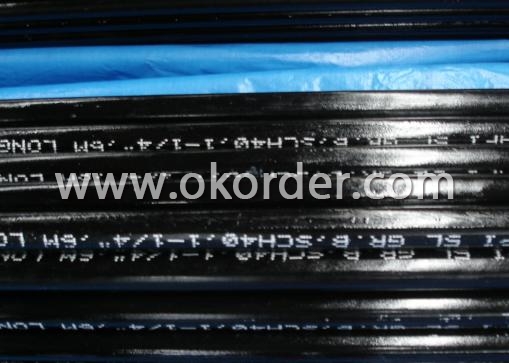
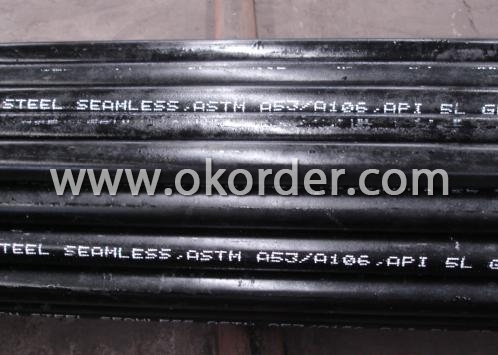
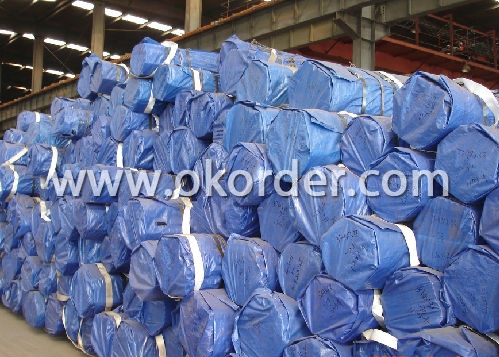
- Q:Are steel pipes suitable for underground irrigation systems?
- Yes, steel pipes are suitable for underground irrigation systems. They are durable, resistant to corrosion, and can withstand high pressure, making them a reliable choice for transporting water underground.
- Q:How do steel pipes handle seismic activities?
- Steel pipes are designed to have high ductility and strength, allowing them to handle seismic activities effectively. The flexibility of steel pipes allows them to absorb and distribute the energy generated during an earthquake, minimizing the risk of structural damage and ensuring the safety of the infrastructure. Additionally, steel pipes can be reinforced with various techniques, such as braces or rubber isolators, to further enhance their seismic resistance.
- Q:How do steel pipes compare to other types of piping materials?
- Steel pipes are known for their exceptional strength, durability, and resistance to corrosion, making them superior to many other types of piping materials. They can withstand high pressure and temperature, making them suitable for a wide range of applications. Additionally, steel pipes are cost-effective, readily available, and easily recyclable, making them a preferred choice in various industries.
- Q:What are the different types of thread connections used in steel pipes?
- The different types of thread connections used in steel pipes include tapered threads such as NPT (National Pipe Thread), BSPT (British Standard Pipe Taper), and API (American Petroleum Institute) threads. There are also parallel threads like BSP (British Standard Pipe) and G (ISO 228-1). These thread connections are used to join and seal steel pipes in various industries and applications.
- Q:How are steel pipes protected against corrosion in marine environments?
- Steel pipes are protected against corrosion in marine environments through various methods, such as applying protective coatings, using sacrificial anodes, employing cathodic protection, and implementing corrosion inhibitors.
- Q:What is the elasticity of steel pipes?
- The elasticity of steel pipes refers to their ability to deform under stress and then return to their original shape once the stress is removed. Steel pipes are known for their high elasticity, which allows them to withstand heavy loads and pressure without permanent deformation.
- Q:What are the challenges faced in transporting steel pipes?
- Some of the challenges faced in transporting steel pipes include their large size and weight, which can make them difficult to handle and transport. Additionally, their shape can make it challenging to secure them properly during transportation to prevent damage or accidents. The corrosive nature of steel pipes can also pose a challenge, as special precautions need to be taken to protect them from rust or other forms of damage during transportation. Finally, the cost of transportation can be a challenge, as steel pipes often require specialized equipment and vehicles, which can be expensive to rent or purchase.
- Q:What are the different methods of pressure testing steel pipes?
- There are several methods of pressure testing steel pipes, including hydrostatic testing, pneumatic testing, and ultrasonic testing. Hydrostatic testing involves filling the pipe with water and applying pressure to check for leaks or weaknesses. Pneumatic testing uses compressed air or gas to pressurize the pipe and detect any leaks or failures. Ultrasonic testing utilizes high-frequency sound waves to inspect the pipe's integrity by detecting any flaws or defects.
- Q:Can steel pipes be used for gas distribution?
- Yes, steel pipes can be used for gas distribution due to their high durability and resistance to corrosion.
- Q:How do you calculate the flow velocity in a steel pipe?
- To calculate the flow velocity in a steel pipe, you need to consider the principles of fluid mechanics and apply relevant equations. The most commonly used equation to calculate flow velocity is the Bernoulli equation, which relates the pressure, velocity, and elevation of a fluid. First, you need to determine the volumetric flow rate (Q) of the fluid passing through the pipe. This can be done by measuring the mass flow rate (m) or the volumetric flow rate directly using a flow meter. Once you have the volumetric flow rate, you can proceed with calculating the flow velocity (V). The flow velocity (V) is obtained by dividing the volumetric flow rate (Q) by the cross-sectional area (A) of the pipe. The cross-sectional area of the pipe can be determined using the formula A = πr^2, where r is the radius of the pipe. Therefore, the formula to calculate the flow velocity (V) in a steel pipe is: V = Q / A Keep in mind that this calculation assumes an ideal flow condition and does not account for any frictional losses or other factors that may affect the flow. In real-world scenarios, it is essential to consider additional factors like pipe roughness, fluid viscosity, and pipe diameter to obtain a more accurate estimation of flow velocity.
1. Manufacturer Overview |
|
|---|---|
| Location | Wuxi, China |
| Year Established | 1991 |
| Annual Output Value | 300,000Tons |
| Main Markets | Europe; Southeast Asia; etc. |
| Company Certifications | API 5L;API 5CT;API Q1;ISO/TS29001 |
2. Manufacturer Certificates |
|
|---|---|
| a) Certification Name | |
| Range | |
| Reference | |
| Validity Period | |
3. Manufacturer Capability |
|
|---|---|
| a)Trade Capacity | |
| Nearest Port | Wuxi; Shanghai |
| Export Percentage | 41% - 50% |
| No.of Employees in Trade Department | 3900-4000 People |
| Language Spoken: | English; Chinese; Spanish |
| b)Factory Information | |
| Factory Size: | Above 450,000 square meters |
| No. of Production Lines | Above 10 |
| Contract Manufacturing | OEM Service Offered;Design Service Offered |
| Product Price Range | Average |
Send your message to us
Seamless Carbon Steel Tubes
- Loading Port:
- China Main Port
- Payment Terms:
- TT or LC
- Min Order Qty:
- 20MT m.t.
- Supply Capability:
- 5000 Tons Per Month m.t./month
OKorder Service Pledge
OKorder Financial Service
Similar products
New products
Hot products
Related keywords

